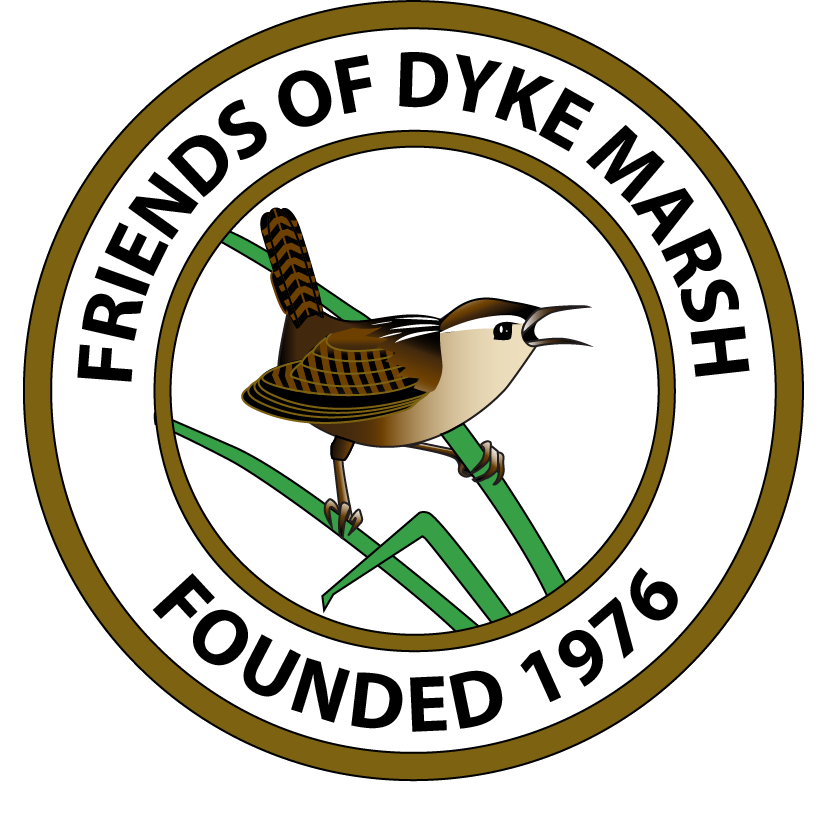On May 19, 2024, National Park Service George Washington Memorial Parkway staff opened the rebuilt, 1,070-foot-long bridge 23 in Dyke Marsh, east of Tulane Drive.
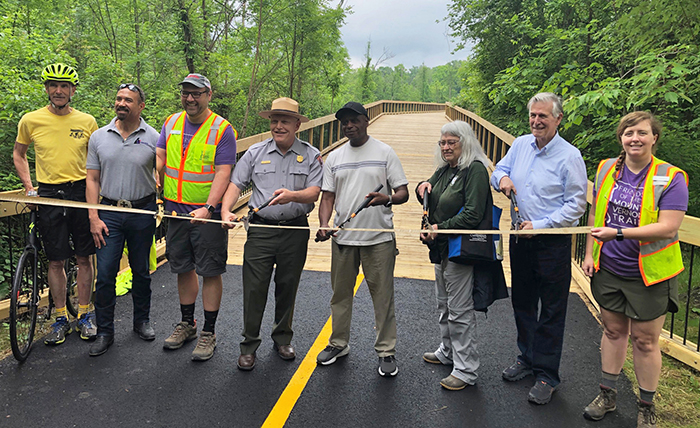 |
| Ribbon-cutting ceremony. Photo by Robert Smith |
The bridge and its observation deck are one of the best places to observe marsh life, like narrow-leaf cattails (Typha angustifolia), spatterdock (Nuphar advena), red-winged blackbirds (Agelaius phoeniceus), great blue herons (Ardea herodias), dragonflies and other wetland vegetation and wildlife. In 2023, barn swallows (Hirundo rustica) built a nest under the bridge and raised young there. By May 26, 2024, there were four new barn swallow nests under the new bridge.
Next to the bridge, since 2015, FODM has treated 18 pumpkin ash trees (Fraxinus profunda) for the invasive emerald ash borer (Agrilus planipennis). The treatments appear to be successful.
In addition to FODMers attending the May 19 event, others were Congressman Don Beyer, GWMP Superintendent Charles Cuvelier and Mount Vernon Board of Supervisors member Dan Storck, members of the Friends of Mount Vernon Trail, some of the contractors who built the bridge and locals.
The NPS press release said, “The bridge was constructed using an innovative method to minimize the footprint of the project and to prevent harm to the underlying marsh ecosystem. Each bridge section was built individually, with construction equipment on top of the previously installed sections. To eliminate the need for construction equipment to drive over the marsh, new sections were then added from the top of the bridge, bypassing the standard approach of building up from the bottom. The project was partially funded through President Biden’s Bipartisan Infrastructure Law, and in partnership with the Federal Highway Administration.” You can read it here: https://www.nps.gov/gwmp/learn/news/national-park-service-announces-grand-reopening-of-bridge-23-on-the-mount-vernon-trail.htm .
FODM urged the Park Service to avoid construction during the spring breeding and fish spawning season and to not expand the paved trail and cause more harm to trees.
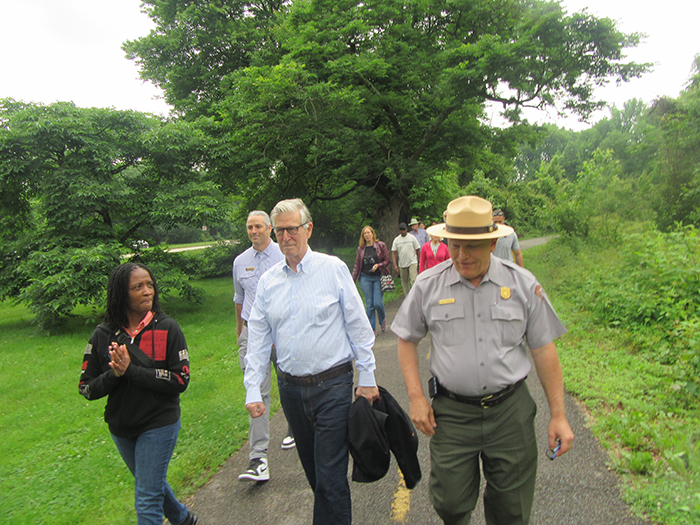 |
| Congressman Don Beyer and GWMP Superintendent led the group from the Marina Road to the new bridge. All photos by Glenda Booth |
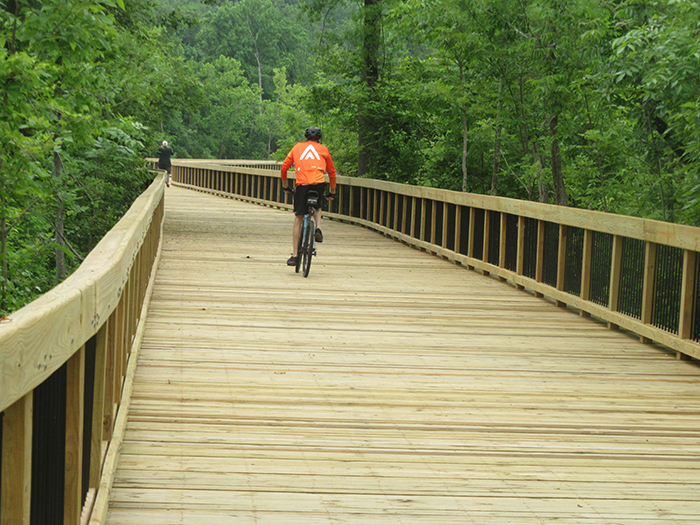 |
| Bikers and walkers began to use the newly-opened bridge immediately. |
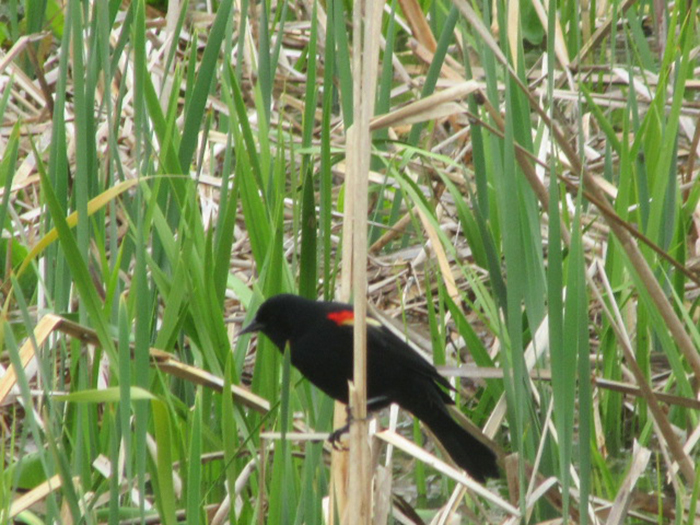 |
| Red-winged blackbirds were establishing territories in the cattails of the wetland near the bridge. |
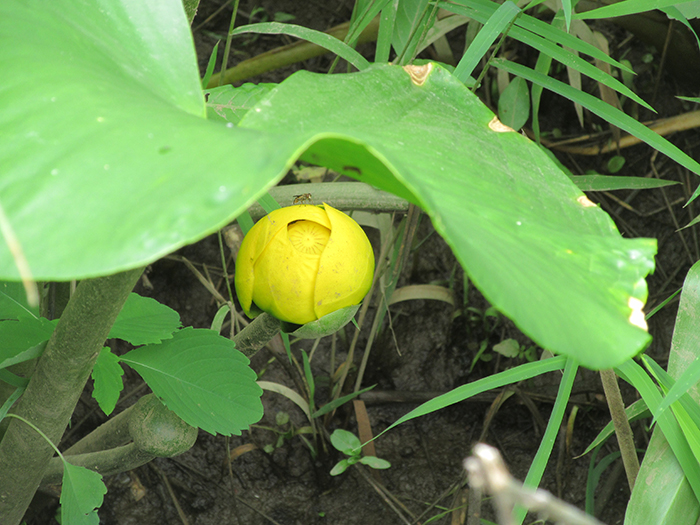 |
| Many walkers use the bridge to observe marsh life, including spatterdock plants that have yellow, golf-ball- like flowers. |
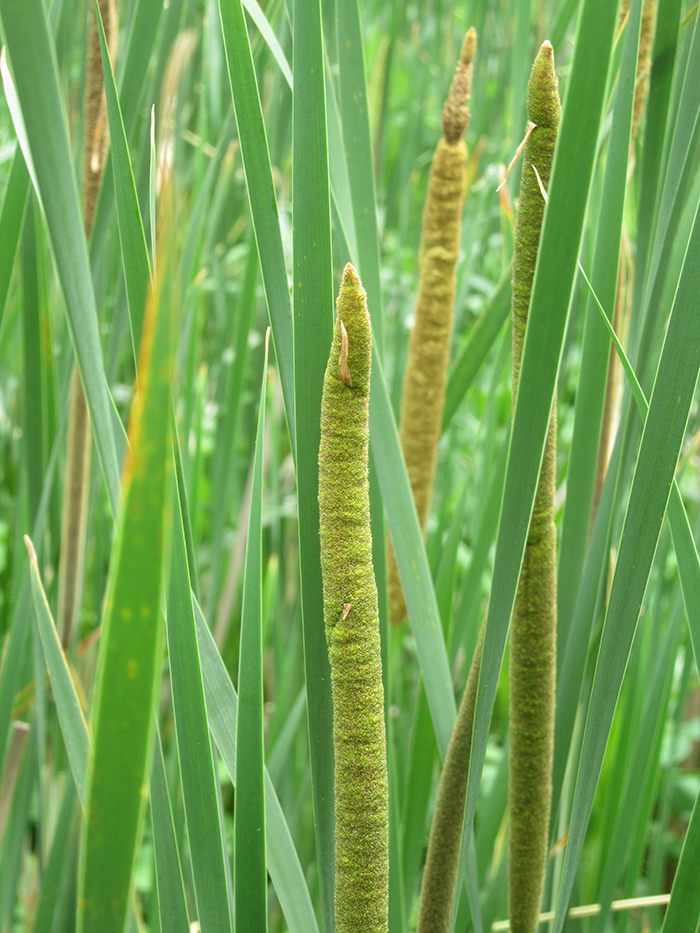 |
| This year's narrow-leaf cattails were beginning to get their flowers which in the summer turn brown. |
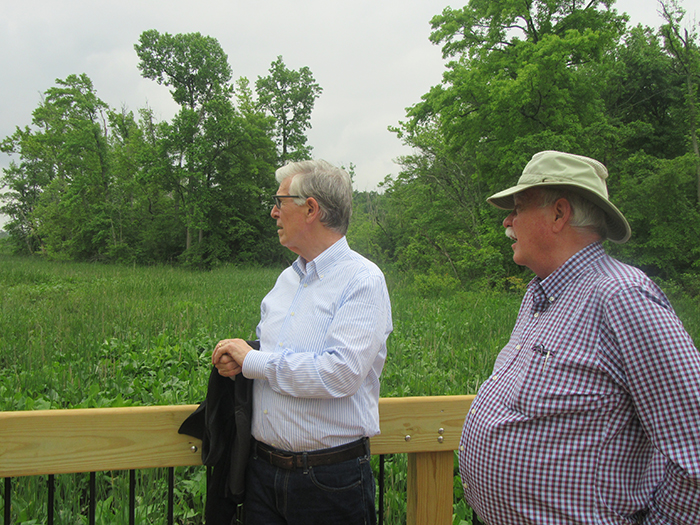 |
| Robert Smith with the Friends of Dyke Marsh (FODM) explained to Congressman Beyer that FODM has treated 18 pumpkin ash trees in the marsh that are at risk because of the invasive emerald ash borer. The treatments appear to be succeeding. |
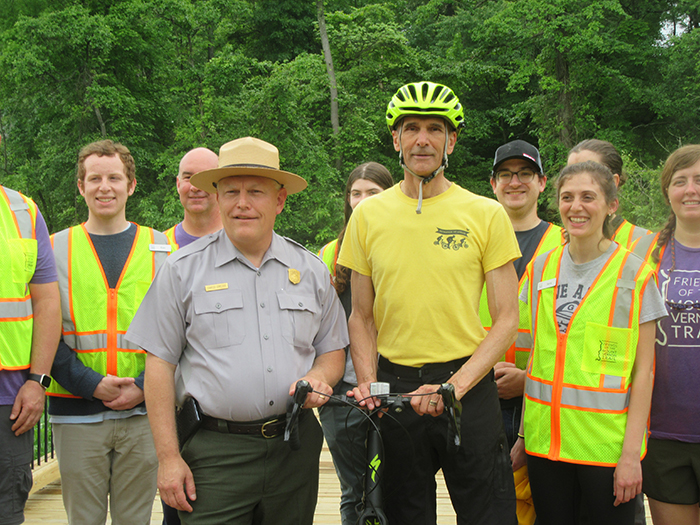 |
| GWMP Superintendent Charles Cuvelier and Mount Vernon Supervisor Dan Storck with some of the Friends of the Mount Vernon Trail. |
